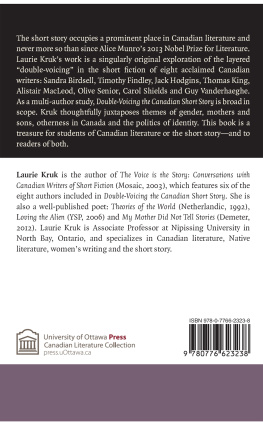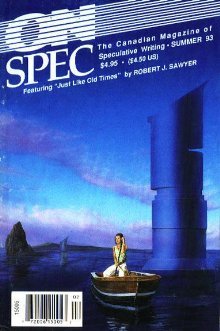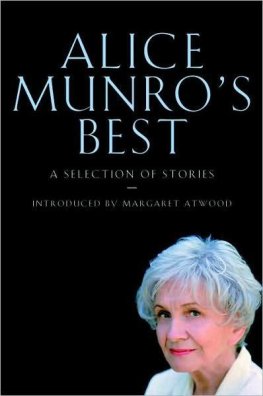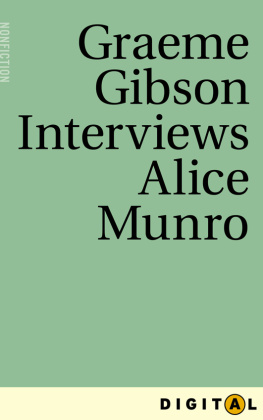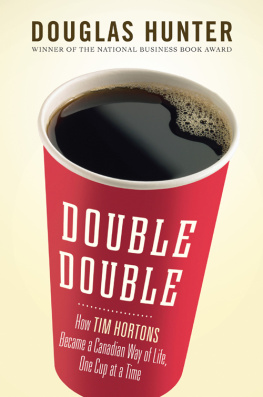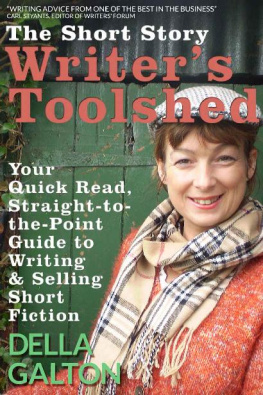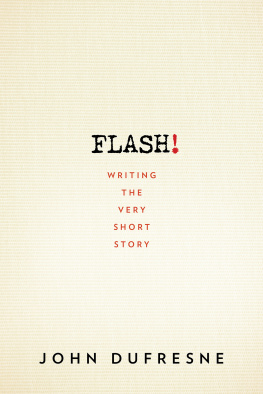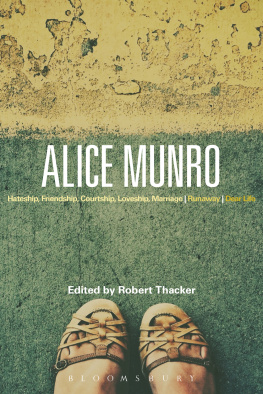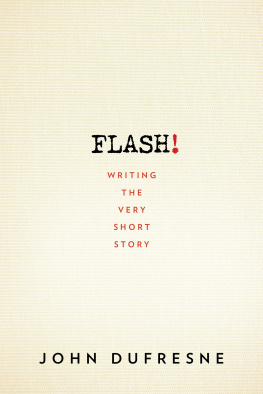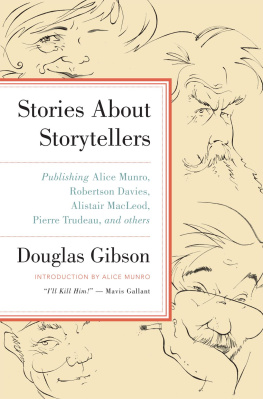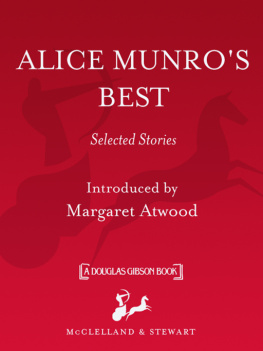

The University of Ottawa Press gratefully acknowledges the support extended to its publishing list by the Government of Canada, the Canada Council for the Arts, and the Ontario Arts Council. This book has been published with the help of a grant from the Federation for the Humanities and Social Sciences, through the Awards to Scholarly Publications Program, using funds provided by the Social Sciences and Humanities Research Council of Canada.
Substantive editing: Helen Guri
Proofreading: Joanne Muzak
Typesetting: CS
Cover design: Elizabeth Schwaiger, Lisa-Marie Smith
Cover image: In Another Realm (2012) by Patti Agapi
Reproduced with kind permission from the artist. Image copyright Patti Agapi.
Library and Archives Canada Cataloguing in Publication
Kruk, Laurie, 1962-, author
Double-voicing the Canadian short story : Birdsell, Findley, Hodgins,
King, MacLeod, Senior, Shields, Vanderhaeghe / by Laurie Kruk.
(Canadian literature collection)
Includes bibliographical references and index.
Issued in print and electronic formats.
ISBN 978-0-7766-2323-8 (paperback).--ISBN 978-0-7766-2325-2 (pdf).-
ISBN 978-0-7766-2326-9 (mobi).--ISBN 978-0-7766-2324-5 (epub)
1. Short stories, Canadian (English)--History and criticism.
2. Canadian fiction (English)--20th century--History and criticism.
I. Title. II. Series: Canadian literature collection
| PS8191.S5K78 2016 | C813.0109054 | C2016-902802-X |
| C2016-902803-8 |
University of Ottawa Press, 2016
Printed in Canada by Gauvin Press
For the storykeepers,
who draw circles of community
around us
Contents
.
.
I would like to begin by acknowledging the academic and institutional support given to me as this book evolved over the years: the Social Science and Humanities Research Council of Canada for a Post-Doctoral Fellowship, Nipissing University for Internal Research Grants and a Research Outcomes Grant, and for the approval of two sabbatical leaves which allowed me to pursue my research. Finally, Awards to Scholarly Publications Program, sponsored by SSHRC, for essential publishing support.
I would also like to extend my gratitude to my colleagues in Nipissings English Studies Program who offered feedback and constructive criticism on significant parts of this book: the Works in Progress group, and in particular, Professors Sarah Winters, Gyllian Phillips, and Peter Clandfield for their additional feedback, interest, and support. Colleagues at our big sister institution, Laurentian University, also offered a friendly forum for my research. My research assistants, Jenna Demers and Meghan McLaren, were unfailingly helpful, cheerful, and engaged by the project. Faculty and Administrative Support Services and Print Plus provided prompt and expert secretarial and printing assistance. Thanks are also due to the Dean of Arts and Science, Dr. Murat Tuncali, and to Jan Ross and the Research Office. I acknowledge the important contributions of the anonymous reviewers obtained by Ottawa University Press. Lastly, I would like to extend my warm thanks to the word women of Ottawa University Press, Dominike Thomas and Elizabeth Schwaiger, who welcomed the book into their publishing program, and freelance editor (and poet) Helen Guri, who skilfully polished my prose.
Finally, as these chapters will show, my interest in feminism, gender, and maternal scholarship is grounded in growthful experience of a vibrant family life: love and appreciation, as always, to my husband Ian; my daughters Elena and Bobbie-Ann, and my parents Mark and Betty Kruk, for all their support, interest, patience, and encouragement over the years.
Some of these chapters have evolved from work that has been published previously in academic journals and/or conference proceedings. I reuse some of this material with kind permission of the following: Atlantis: Critical Studies in Gender, Culture and Social Justice (www.msvu.ca/atlantis); Contemporary Womens Writing; University of Ottawa Press for Dominant Impressions: Essays on the Canadian Short Story, edited by Gerald Lynch and Angela Arnold Robbeson (1999); Canadian Literature; and the Journal of the Short Story in English.
Introduction:
Double-Voicing the Canadian Short Story
Two voices
took turns using my eyes.
Margaret Atwood, The Journals of Susanna Moodie
F rom its beginnings, Canadian literature may be characterized as speaking in two voices. Divided in multiple ways, our national body of writing is attracted to conflicts and tensions experienced, as Atwood suggested over forty years ago, in terms of violent dualities encompassing, but not limited to, the binaries young/old, regional/international, British/American, French/English, urban/rural, north/south. Given these long-standing contradictory identities, the short story is (English) Canadas particularly apt literary reflection, being itself described as old and young, marginal and popular, modernist and postmodernist, shorter and longer. In The One and the Many, he notes, The short story is the youngest of the canonic genres, beginning only about the middle of the nineteenth century (3). In 2009, W. H. New addressed the Canadian short story, making the case for not just its survival, but its triumph, despite the challenges of marketing in this new century, declaring,
In the first decade of the twenty-first century approximately fifty collections were appearing every year. While markets for the genre remained fragile, short fiction nevertheless became more visible and more varied, with publishers seeking further ways to attract commercial attention and new writers keen to address readers in a different manner and voice. (The Short Story 381)
It is just this interest in a different voice that inspires my own contribution to the study of the contemporary Canadian short story, with its ability to express or reflect multiple selves and so draw inanother paradoxnot just a national but a growing international readership.
To the extent that Canadians may be viewed as subordinate in culture, to differing degrees, we too may participate in this twentieth-century trend towards an articulation of divided selves engaging strategically and subversively with that very discovery.
By offering attentive comparative readings of their stories, I demonstrate the ways in which these eight authors create double-voiced discourse by means of theme, technique, literary mode, and linguistic or discursive dialogizing, or the juxtaposition of words, or types of speech, that embody conflicting contexts. By doing so, they figuratively cross borders, just as Canadian literature has always done, to powerfully probe personal, cultural, and national identities. For example, Kings thematizing of pan-Native cultural otherness, within Canadian literature, fractures monological or single-voiced discourse by fusing conflicting speech effects associated with orality and literacy cultures. Seniors recuperation of what is now politically reframed as nation language in the form of patwa or Creole within her well-crafted stories poses a similar challenge to dominant Englishness, but from the location of Jamaica, another former British colony. MacLeods incorporation of Gaelic, the trace of the Celtic
Next page
